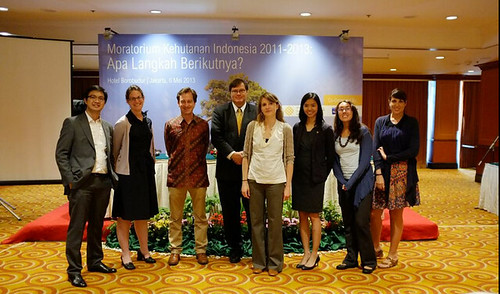Indonesia Forest Moratorium 2011-2013: What Next?
In late 2009, Indonesia announced a bold commitment to reduce its greenhouse gas emissions by 26 percent (or 41 percent with international assistance) by 2020, compared to business as usual. The nation aims to achieve 87 percent of this goal by reducing emissions from deforestation and peat land conversion. At the same time, Indonesia aims to increase agricultural production of 15 major crops, including, for example, doubling palm oil production by 2020 from 2009 levels. Achieving these production goals will require planting more land, even after expected increases in yields.
In a step toward reconciling these goals, Indonesia put into effect a two-year moratorium on the award of new concessions to convert primary natural forests and peat lands in May 2011. This moratorium is designed to allow time for the government—with participation from industry and civil society—to develop improved processes for land-use planning and permitting, to strengthen data collection and information systems, and to build institutions necessary to achieve Indonesia’s low emission development goals.
WRI and partners have been investigating the current status of the governance reforms outlined in the moratorium regulation. The aim is to evaluate:
- proposed and ongoing reforms to the license review and revision process
- the processes being put in place to improve harmonization of spatial plans
- the accuracy of current concession boundary data and
- forest cover changes inside the moratorium boundaries.
This workshop, convened by WRI, Forest Watch Indonesia and Yayasan Puter, aimed to validate and discuss our findings with subnational and national stakeholders marking the end of the two-year moratorium. Further we aimed to collectively discuss priority next steps, and key challenges, for the on-going governance reform processes
Projects

Forests and Landscapes in Indonesia
Visit ProjectData-driven analysis to support government and civil society actions for effective and equitable land-use in Indonesia.
Part of Climate
